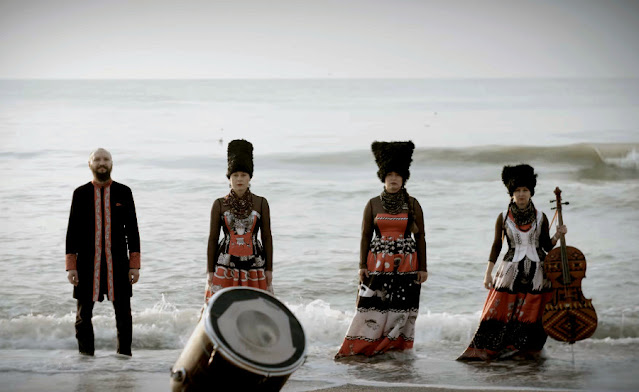Is TV suffering under our current capitalist system?
In lasts weeks blog I discussed how theatre has changed due to our current capitalist landscape. That is one in which profit tends to be valued above all else. I concluded that as profit comes first musical theatre is currently in a state of creative bankruptcy where movie-based musicals are favoured and produced solely based upon the profit that could be made rather than the quality of the show as a musical itself. Whilst I concluded that there was indeed a severe issue in this way of producing musical theatre I didn't move beyond the discussion of theatre in general. Therefore, this week I will be discussing whether placing profit over quality and creativity is ruining TV.
Whilst TV has never quite reached the artistic status in ways that both film and theatre have we can still see the creativity that lies within multiple tv shows. One of my favourite TV shows is Bojack Horseman, It is quite easy to see the creativity and charm inherent within it. Whilst the animation may not be as appealing or inherently creative as something like Robin Robin or The Amazing World of Gumball the storytelling and the world building is consistently compelling and creative in ways adult animation has never been. It focuses deeply on human nature (despite half the characters being non-human) and on the struggles and pressures society has placed upon us. In no other show is the general struggles of existence, mental illness and trauma so perfectly expressed than in Bojack Horseman. This goes without mentioning the creative humour on display and the extreme attention to detail when it comes to continuity and developing the characters (i.e. in one episode Bojack breaks his bed, the bed is then seen propped up with books for the rest of the season). Overall I love Bojack horseman due to the masterful and unique way for which it was crafted. Yet it was cancelled. Why was it cancelled? Because it wasn't making Netflix profit. Whilst It may seem I'm complaining simply because my favourite TV show was cancelled, cancellation seems like a prominent issue within our current capitalist society.
Indeed, uniquely clever and creative shows seem to have been cancelled left right and centre, more so over the past several years than since TV began. Indeed within the past five years we have seen Daredevil, Happy, The Get Down, Altered Carbon, I Am Not Okay With This, Ozark and many more shows being cancelled, many ending without a satisfying conclusion , even staple soaps like Holby City and (potentially) Neighbours have been cancelled this year. Whilst it has always been the case that TV relies on ratings and shows would get pushed aside if they weren't bringing in any viewers it seems like an epidemic is on hand with how many have been cancelled within the past several years or so. These cancellations can largely be placed down to how streaming has changed the landscape for the shows we watch. Whilst TV executives may cancel a show based on overall low viewership over the general TV run of the show, Netflix will often take into account not only who watched a show on the day it came out but how many continue to watch it after the first week, (which takes into account word of mouth promotion), how many subscribed to watch the show and how many watched it in its entirety. This builds a more detailed and comprehensive study into a shows viewership but due to the differing variables it often allows for more cancellations on the basis of word of mouth promotion, for example, being too low. Netflix will also, unlike TV channels, commission a full first season rather than just a pilot, which does ultimately allow for more shows to be aired which may never have seen the light of day but also more shows to be cancelled if they aren't drawing in enough viewers and thus keeping the subscription count (thus profit) at a sustainable level. Netflix will also favour creating a pilot season over funding a third season due to the former being cheaper as they must allocate more funding to a show each season it progresses. Indeed ultimately Netflix's model allows for more cancellations of TV shows than ever before and places viewership, thus profit, over the completion of a series.
Therefore we can conclude that through its multiple cancellations that Netflix places profit above certain audiences interests and above the show itself. This therefore causes issue in terms of stifling all creativity and expression that comes through making serialised entertainment. It does so by forcing creatives to either finish their stories early or not finish them at all. Perhaps depriving us all of a masterful conclusion or some real form of art (or the closest television can come to) in the new and unique ideas which may have been presented if it had not been cancelled. And indeed it is an issue because how prevalent this stifling of creative storytelling has been over the past several years. Imagine if the last Lord of the Rings novel wasn't published due to lack of profit from the previous instalment, we would have missed the masterful storytelling that was at play, that has journeyed between multiple generations of fans. Whilst I'm not claiming that many of the shows would have as long a lasting impact as lord of the rings or would necessarily be as masterful, there is no denying that we may miss some creative wonders due to this mass cancelling of tv shows by putting profit first.
Thats not all the Netflix model has also causes issue for the creativity found within the show itself. For example on streaming services we may be deprived of having a show be as creative and exciting as possible as the creators may choose to play it safe and appeal to as many people as possible, in order to make sure their show doesn't get cancelled after season 1. This means that show creators are robbed of free expression and we as an audience are robbed of what possibly could have been. But this seems to be a larger issue when it comes to shows on regular TV than on streaming services. Indeed TV now needs to compete with the ever increasing line of streaming services, all with enough time and budget to create a multitude of shows which can all be viewed at any time of the day. This therefore means that TV channels are playing it safe. I have noticed that over the past few years that the only new shows on TV are either Detective shows, Game Shows or Reality shows. There are very few new dramas which don't focus on murder or policing and even the creation of new comedy shows is decreasing. The airing of This Is Going To Hurt this week made me notice this even more so having felt like I had not seen a new primetime show that wasn't a mystery or police show since It's a Sin last year. Indeed, the need to put viewership and the profit one receives from viewership above what is being shown itself has led to an ultimate drain on unique concepts being shown on TV. Instead the channels decide to play it safe and maintain a formula they either know works (Detective shows) or produce shows that are so cheap to make that it ultimately doesn't matter if they lose viewers (game/reality shows). They no longer allow for people to come to them with fresh ideas, they no longer search for shows which may captivate audiences for years to come or scripts which a person has put a life time of work into instead they play it safe to maximise profit and not risk losing out to streaming services. This is especially the case with channels which rely on making a profit from adverts and thus viewership (ITV, Channel 4 and 5 etc). Indeed, the need to maintain and make profit has seemed to put a damper on the general population having a vast range of interesting and extremely different programmes on offer every night. Thus putting a damper on the general creativity that one could put into a new idea for a new show concept.
Indeed once again it seems that our current system of holding profit above everything else has began to make another creative industry suffer. Reducing the entertainment and excitement in our lives and putting artistic expression on hold.





Comments
Post a Comment